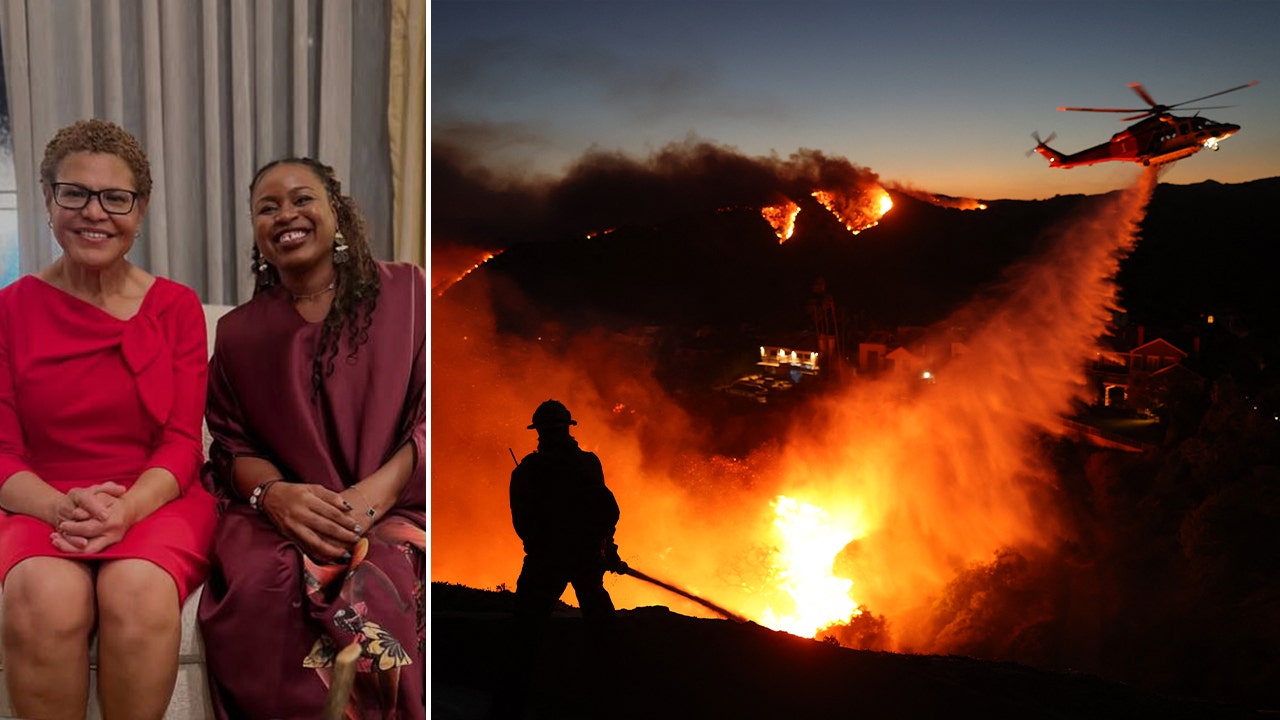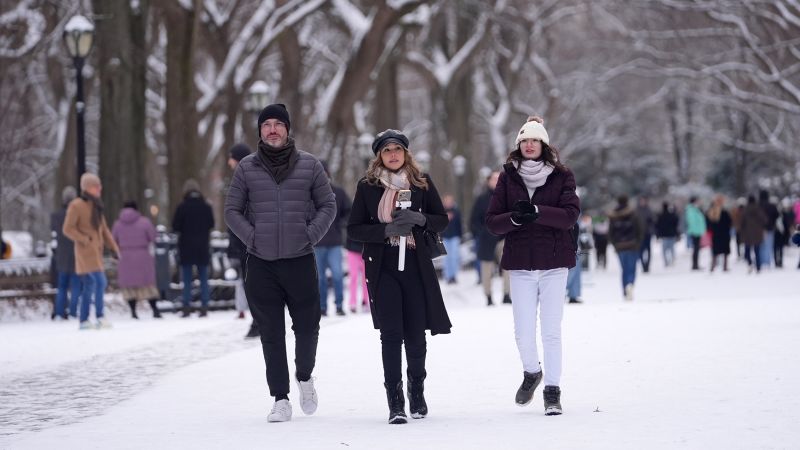The French press paid attention to the situation of tens of thousands of Palestinians who left northern Gaza in trucks, cars, donkey carts, or even on foot, and told stories of the misery and fear they are experiencing after they fled the hell of the ongoing Israeli bombing of northern Gaza. sector To the “paradise of the south,” where they lack everything, even the safety they went out seeking.
Le Point magazine chose a title that describes the reality of the displaced, such as “Displaced from Gaza amid dust, cold and hunger,” while Le Figaro’s title referred to the disappointment and sarcasm of the displaced, “We escaped from hell to heaven…the last residents of Gaza are displaced.” As for Le Monde, it contented itself with conveying the messages of a photographer from Gaza. To his comrades under the title “Diving into the daily life of the conflict in Gaza thanks to letters from a photographer,” especially since providing information from Gaza is very complicated, as journalists who were not in Gaza are not allowed to enter it except in cases of incursion with Israeli occupation army units.
Umm Yacoub: I don’t even have pie to feed my children. Since six in the morning I have been searching everywhere, but I will not be able to provide food for them.
No baked pie
Le Point – in a report from Agence France-Presse correspondent May Yaghi in Gaza – reported the story of Youssef Muhanna, who was injured and whose house in Jabalia was destroyed, so he lived “25 days with nothing,” before he left, like other thousands, toward the south of the Gaza Strip, hoping to reach… Rafah on the Egyptian border, and it cost him 120 euros, which was all he had, and the journey was arduous, even if it did not exceed 25 kilometers, as he covered it in more than 8 hours with his six children and his sick wife, and he covered part of it on foot while he was pushing his wife in her chair.
In Khan Yunis, Muhanna found hundreds of families, with their children sitting on the ground or sleeping on the shoulder of a parent. Despite the Israeli army’s assertion that this area is relatively safer, 4 bombs dropped by its planes there destroyed 10 homes in Bani Suhaila, resulting in “10 martyrs.” Among them are women and children,” according to the director of Gaza hospitals, Muhammad Zaqout.
Umm Yaqoub (42 years old), who arrived in Khan Yunis three days ago with her husband and seven children, protests, saying, “I don’t even have pie to feed my children. Since six in the morning I have been searching everywhere, but I will not be able to provide food for them.” It is strange that the south suffers from a shortage of electricity and fuel and high rent due to the implemented Israeli siege and the influx of displaced people from the northern Gaza Strip.
Displacement under fire
For its part, Le Figaro newspaper narrated on the authority of its translator, Rami Abu Jamous, his journey from Gaza City to the southern Gaza Strip under Israeli fire. Abu Jamous did not want to leave at first, to live 35 days of “flirting with death” and the scarcity of the basics of living, locked in his apartment with his wife and their adult son. He was two years old, before the Israeli military machine forced him to surrender and flee.
After Israeli tanks surrounded the building, which is located in the heart of Gaza City, a few hundred meters from Al-Shifa Hospital, Abu Jamous took refuge in the lobby of the building with a few neighbors, and in the middle of the night, he sent this message to the “Gaza Life” group. .Vie) on WhatsApp, “Given the bombing, I think they will demolish the building above our heads, but the moment of death is like a simple prick. We will not feel anything.” He added, “Farewell, my friends.” He continued, “I do not want you to be sad after our separation. On the contrary, I want you to Be happy for us, we left hell to go to heaven… October 10… at 1:30 in the morning.”
After a long silence on the WhatsApp group, Rami Abu Jamous posted a series of videos bearing witness to the displacement, showing white flags and a woman sitting in her wheelchair. He himself appeared to be the leader of the group giving instructions. He later explained, “The army called us on a neighbor’s phone and said: We know.” You are in the tower, we give you half an hour to leave with white flags.”
In another clip, small groups of civilians are seen leaving their buildings and heading towards… Al-Shifa HospitalAn old man, two old women, children with backpacks, and a buffalo carrying his young child, bullets flying everywhere, before they reached Al-Shifa Hospital, where bodies were scattered all over the courtyard. “We must flee again. Then the humiliation began.”
Abu Jamous: Looking at the bombing, I think they will demolish the building above our heads, but the moment of death is like a simple prick. We will not feel anything… I do not want you to be sad after our separation. On the contrary, I want you to be happy for us. We left hell to go to heaven.
In the “corridor” leading south, Abu Jamous and his family appear on the back of a vehicle. He says, “The insult continued when we passed the Israeli army on foot on Salah al-Din Street. They were on our left, on top of tanks and bulldozers. I carried my son in one hand and my bag in the other. My wife was trembling.” “Out of fear. Sometimes they would arrest a man. There are remains of people who were apparently heading south.”
Everyone is searching
Like Le Figaro, Le Monde newspaper chose to publish a video report whose messages were filtered through the WhatsApp application from the Gazan Sameh Nidal Rahimi – nicknamed “Abu Beirut” – to his fellow Arab journalists, especially the Lebanese photographer Gabriel Vernini, in which he narrates from the besieged sector an aspect of the suffering and heartbreak. Under Israeli bombing, especially after he moved with his wife and two daughters to live with his in-laws in Deir al-Balah, as the Israeli army dropped leaflets calling on Gazans living in the northern Gaza Strip to flee to the south, as part of forced deportation in violation of international law, Rahimi writes.
Rahimi – according to the newspaper – tries to photograph scenes from his daily life with his family, but he constantly suffers from a lack of communication and is unable to send his pictures except after a long struggle. He says that bombs leave no place in the Strip, neither hospitals, nor residential areas, nor schools, and dozens have been wiped out. Families from the civil registry, “I am losing my friends. Whenever I ask about someone, I am told he is dead or under the rubble.”
Sameh: We are 35 people here. I am responsible for feeding 13 children. I leave in the morning to find something useful for them and do not return until the evening. Danger is everywhere, and I am always under bombs. This is a heavy responsibility on my shoulders
The young man in his thirties – according to Le Monde newspaper – seems torn between his family obligations and his desire to work to be a witness to the situation. He says, “We are 35 people here, and I am responsible for feeding 13 children. I leave in the morning to find something useful for them and do not return until the evening. Danger is everywhere. “I am always under bombs. This is a heavy responsibility that falls on my shoulders. As soon as possible I will return to work.”
Like Abu Beirut – according to Le Monde – everyone is in the streets searching for something, in the middle of a siege that is gradually suffocating the population, where there is no electricity or gas, food and water are running out, store shelves are empty and prices have risen 10 times, and even starting a fire becomes an adventure if it is spotted by planes, and Abu Beirut is consumed by helplessness. In front of the sight of his daughter and wife, who were sick with fear.
Abu Beirut – who has not been able to shower for 17 days – concludes, shouting, “A ceasefire never happens. People in Gaza are subjected to collective punishment. We are being crushed by governments all over the world, especially Arab governments. The Rafah crossing is in front of us, open it.” Then his voice calms down as he sings the verses of the Palestinian poet Mahmoud Darwish: “On this earth there is nothing worthy of life. We will stay. I will try until my last breath.”





